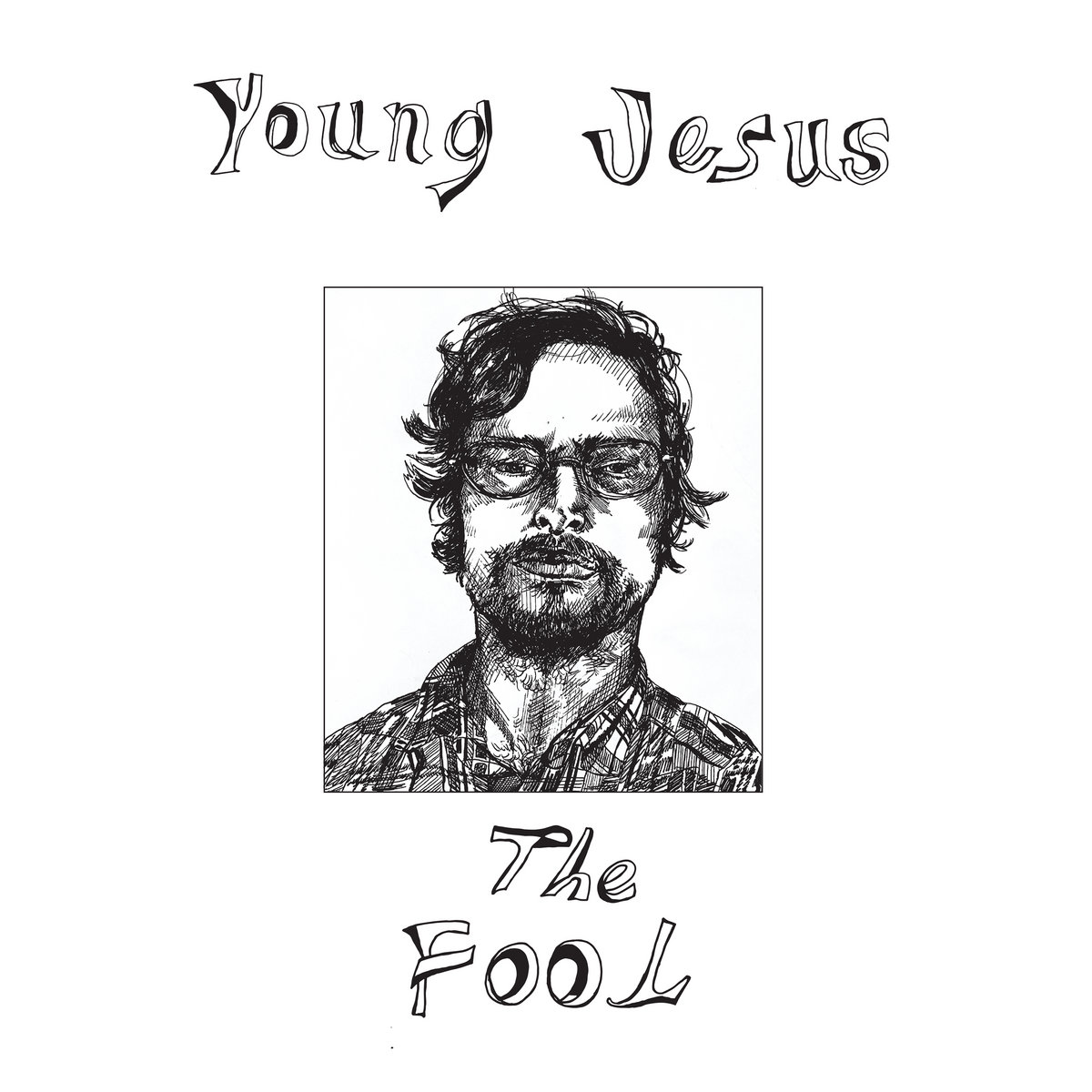Young Jesus
The Fool
SADDLE CREEK
Young Jesus has always been willing and able to push the envelope, letting ideas collapse and rebuild within single songs. The moment you think you have a grasp on where one of John Rossiter’s compositions is headed is the moment it dissolves in your hand. These are songs that vehemently resist playlisting or vibe-setting of any kind; it’s music that challenges listeners to the point of confounding them, and never considers holding your hand for even a moment. And yet, his new album The Fool finds a way to introduce just the hint of approachability among all this unwieldy madness. Don’t get me wrong, Rossiter’s music is as morally tangled as ever, spinning ornate webs out of self-hate before slashing through them with a sword of paper-thin bravado—but there’s a kind of gallows glee to his latest, an eyes-closed acceptance that, at least for this record, significantly changes the equation.
Nowhere is that clearer than on “Brenda & Diane,” the record’s opener and first single, which sees Rossiter somehow gaining purchase on the tight strip of land connecting Springsteen, Sufjan, and Will Toledo. Previous Young Jesus records weren’t necessarily devoid of tight hooks and soaring choruses, but they were often buried under mountains of sound, dispersed sparingly and apologetically, terse glimpses into a songwriter fighting tooth and nail against pop instinct. That’s not the case here, where full-throated grandeur and widescreen piano chords are front and center. And The Fool doesn’t necessarily maintain this register throughout—this is undeniably the most sweeping and bold of any of the band’s records. As with “Brenda & Diane,” a song like “MOTY” embraces classic heartland-rock signifiers in an attempt to put its arms around ideas as weighty as politics, hypocrisy, cyclical damage, and fear, Rossiter’s shaky growl as confident and despondent as ever.
If there’s a tighter theme running throughout The Fool it’s honest and sometimes downright brutal self-judgment. This may be obvious for a record that places a sketch of the artist’s face beneath such a title, but it goes deeper than a desire to poke innocent fun. “Am I the only one who asks his love if what I did was wrong when I was younger? / Am I the narcissist who needs the focus racked to all my pain and my discomfort? / Am I an escapist or a sadist?” goes the opening lines of “Am I the Only One,” a particularly thorny attempt at forgiveness. This is nothing compared to “Rich,” perhaps the moral centerpiece of The Fool, and a song that turns a whole lifetime—at times several lifetimes—of white guilt, class shame, and mental health into a vivid six-minute barometer of pain, the broken harmony of its outro an effort at universalization that implicates us all in one way or another.
This is undoubtedly the least conventionally experimental record Young Jesus has made, but to call it accessible might be an overstatement. Rossiter’s examination of his own psyche is exhaustive, his voice the sonic equivalent of a set of downcast eyes and his instrumentation a sunset falling across rusted metal. It’s all as beautiful as it is dour. Demons, gods, communion, true love, and Instagram are all treated with both reverence and derision, parts of a beautiful whole that might not mean a damn thing. It’s a vast set of ideas for a pop song or an experimental freeform jazz song to contain, but Rossiter does his best on The Fool, very frequently managing to scratch the ceiling of his ambition, a feat deserving of celebration.







